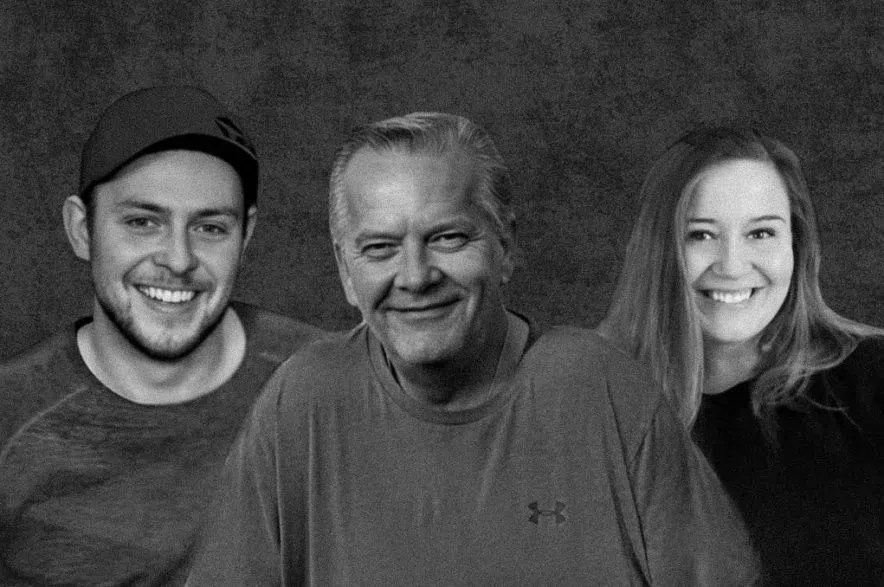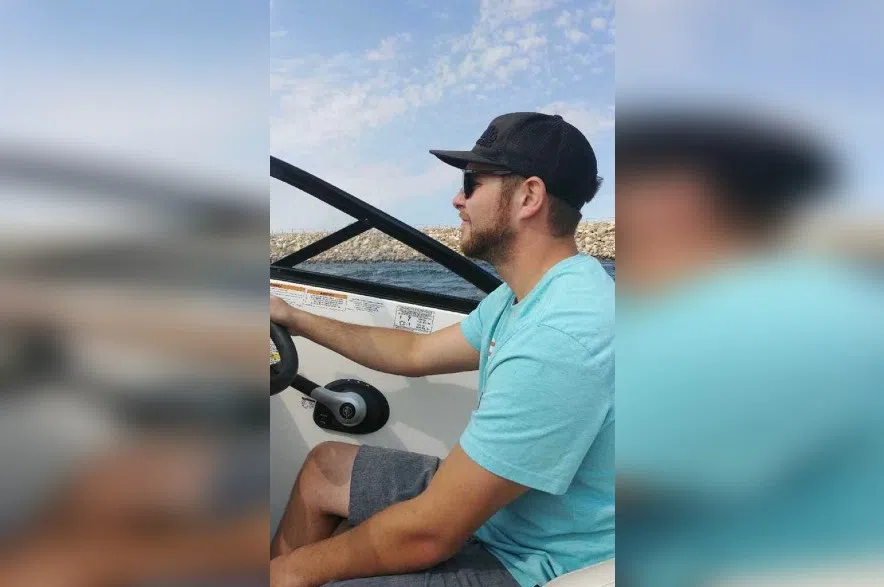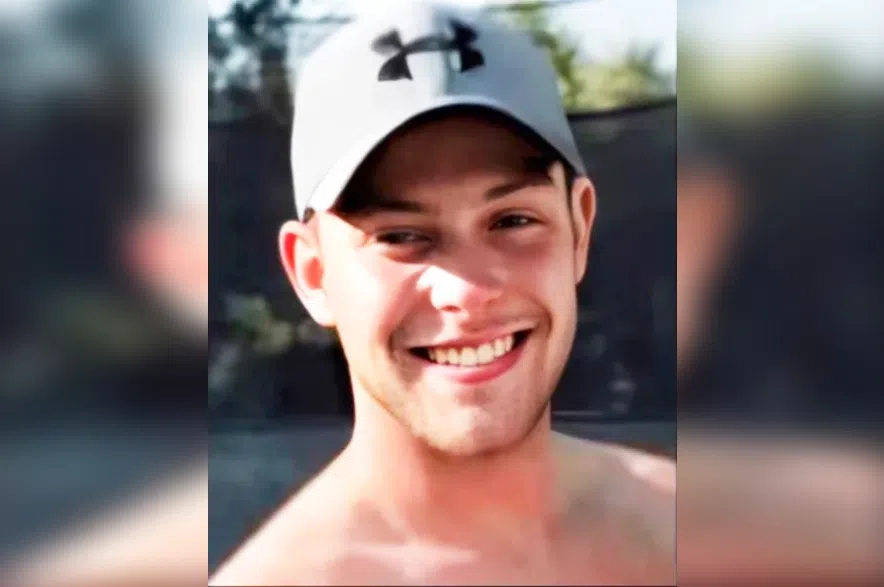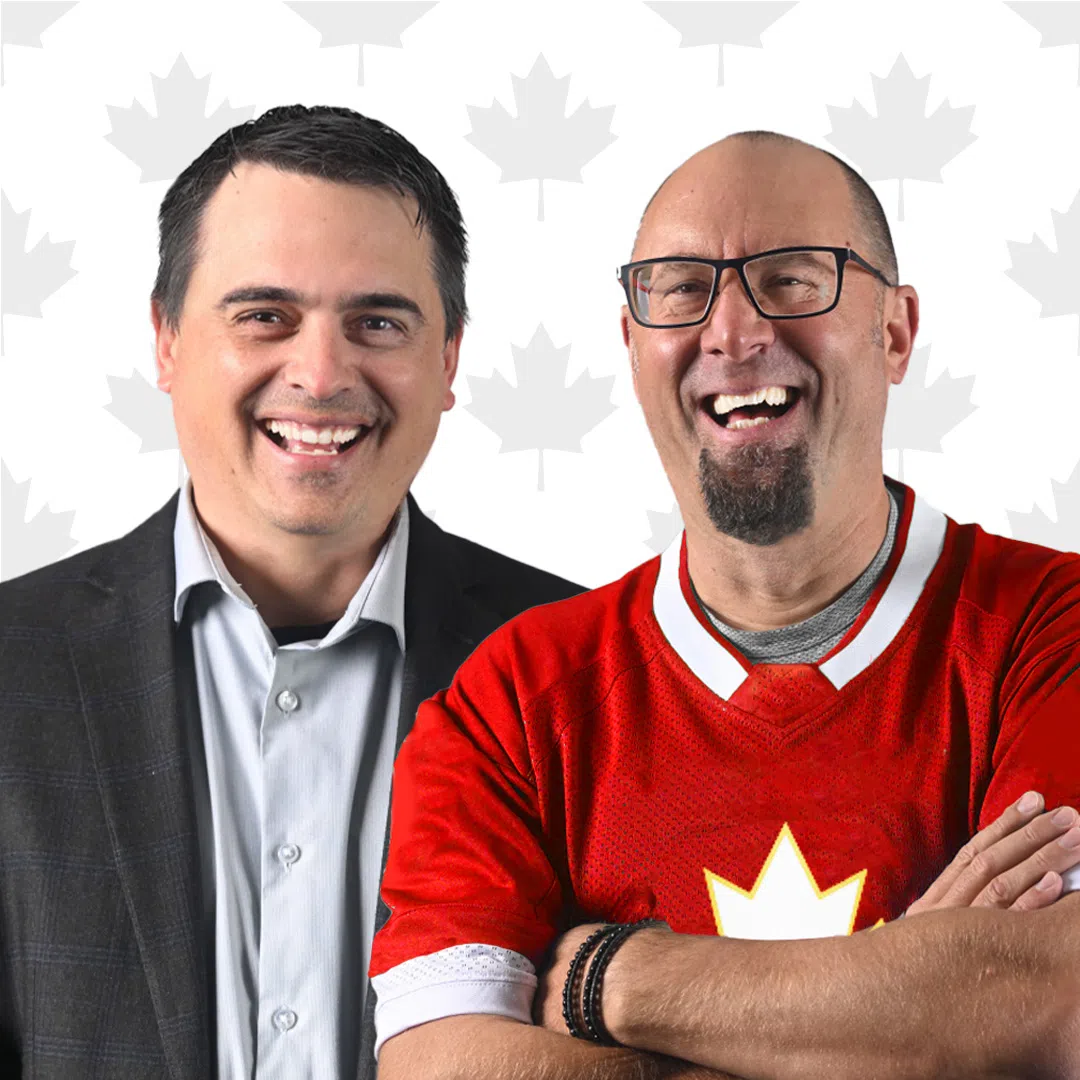Warning: This story contains references to suicide and details of violence. Find support resources at the end of this file.
Sydney Booker will always remember her brother, Ryan, as a great father who loved his two kids more than anything, rather than someone who was shot by police.
“He had so much love for his sons, so much love for his fiancée, and he was just scared,” she said. “Unfortunately, mental health is a huge problem, and I just wish he had the chance to continue to be the great man that he was.”
On Wednesday afternoon, the coroner’s jury ruled that Booker’s death was a suicide. The decision came after three days of testimony from 15 witnesses, including family and law enforcement.
The jury did not make any recommendations on how to prevent similar deaths in the future.
On July 17, 2022, Booker was shot by an RCMP sniper after a six-hour standoff on Highway 1 near Belle Plaine.
Read more:
- ‘He was loved’: Family members of man fatally shot by police testify at inquest
- ‘I saw the window shatter’: RCMP sniper testifies at inquest into death of Ryan Booker
Witnesses from Booker’s family spoke about how Booker struggled with drugs, alcohol, mental health issues, and suicidal thoughts leading up to his death.
Constable Jay Sills, Moose Jaw Police Service crisis negotiator, testified that Booker told him he was planning on ending his life, attempting to get officers to shoot him, sometimes referred to as “suicide by cop.”
Sydney said she did not agree with the jury’s ruling that her brother’s death was suicide.
She wished her family members had been able to speak with Ryan during the standoff to be able to try and calm him down, and wished the jury had made those recommendations to allow police to do so.

Ryan’s father, Barry Nosal (middle), said his son was a loving person who made everyone laugh. (From left to right: Ryan Booker, Barry Nosal, Sydney Booker) (Submitted/ Sydney Booker)
“He thought that he was alone, and that nobody cared for him, and that was not the case at all,” Sydney said. “Any one of us would have put our lives in danger if it meant saving his.”
Sydney said Ryan’s “pride and joy in life” was being a dad, and he loved taking his five and 11-year-old boys hunting and fishing.
Many officers had testified they believed it would upset or “trigger” Ryan further to speak with his fiancée or parents, but Sills said he calmed or “hooked” Ryan by speaking about his two kids.
“If you knew the hook, the reason for wanting to live was his two boys, would it not have made more of an impact of sending videos or pictures of his two little guys, instead of hearing from a stranger that he’s loved?” Sydney questioned outside the inquest venue.
Barry Nosal, Ryan’s father, said he felt that less lethal options were not explored by police.
“I just wasn’t impressed,” he said. “I wasn’t impressed with the whole process. It was three days of extreme pain, and I don’t feel much was accomplished.”
Knowing that Ryan’s finger was not on the trigger of the rifle, Sydney said she believes her brother did not want to die, and needed mental health support instead.
“I just hate how he didn’t get the chance to get help,” she said. “He’s not that monster that everybody thinks he is … he was depressed, and he needed help, and I wish that we could have gotten that for him.”
Officers testify Booker’s death was the result of his own actions
RCMP Constable Tyler Peterson told the jury that the Emergency Response Team (ERT) considered less lethal options when trying to get Booker to surrender, but faced challenges in implementing those methods.
Peterson said sponge rounds and deploying tear gas were considered, but it would have required officers to risk hurting themselves to be able to conduct those measures.
A police dog would have tackled Booker if he had gotten out of the vehicle, Peterson said, but the dog couldn’t jump through the open window on the side of Booker’s car.
When questioned by the coroner’s consultant Robin Ritter, Peterson said it would have been too great a risk for the sniper to shoot the rifle out of Booker’s possession.
RCMP sniper Burton Steele testified the day before that at 70 metres away, he could shoot incredibly accurately, being able to hit a nickel at that distance.
Peterson agreed he felt Booker’s death was unavoidable, based on his actions.

A crisis negotiator with the Moose Jaw Police Service testified that Booker had threatened to fire a gun in the air and shoot down the police drone above him. An inquest into Booker’s death is being held this week at the Royal Hotel in Regina. (Gillian Massie/ 980 CJME)
As the team lead of the ERT, Superintendent Andrew Farquhar said he could not remember speaking about less lethal options with other officers.
Farquhar testified that he brought forth the best possible option, based on information given to him by crisis negotiators when he took control over Booker’s situation.
Booker was shot and killed by Steele after multiple officers said he levelled the gun out the window of the car near where the sniper was positioned.
Avery James Waldal, a paramedic with the Regina SWAT team, watched the shooting nearby.
“I just saw his neck explode,” he said.
After Booker’s body was dragged out of the vehicle by two officers, Waldal said a “copious” amount of blood was leaking onto the ground.
He said he checked Booker’s pulse, but was “extremely pessimistic there was anything we could do for him.”
Toxicology report finds evidence of drugs
Dr. Andreea Nistor, a forensic pathologist, conducted the autopsy on Booker’s body, saying he bled out “faster than an ambulance would be able to take him to the hospital.”
Nistor said Booker’s most significant injury was the gunshot wound to his face and neck, labelling it in the coroner’s report as the result of his death.
There were abrasions on his face and upper neck, she said, which were likely the result of broken glass.
The report noted there were cuts on his wrists, which Nistor suggested was “some sort of self-harm behaviour.”
When Nistor received information from the toxicology report, it found Booker’s samples had stimulants and hallucinogens in his bloodstream.
Nistor said drugs are not always relevant in the result in the person’s cause of death; but it can change their behaviour during the time leading up to their death.
If you or someone you know is thinking about suicide, support is available 24/7 by calling or texting 988, Canada’s national suicide prevention helpline.
The Kids Help Phone is available 24-7 at 1-800-668-6868, or text 686868. Adults can access Saskatoon Mobile Crisis 24-7 at 306-933-6200. Mental health support is also available at 306-655-7777 in Saskatoon or at HealthLine 811.
Read more:












